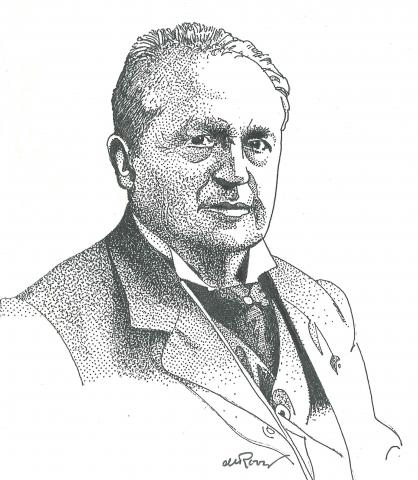A revised and updated version of
Abraham Kuyper: An Annotated Bibliography 1857-2010 by Tjitze Kuipers (2011)
You can buy a printed edition of this book on the site of the publisher.
1900
The reports on pages 63–151 concern the public discussion of the new draft legislation, “Statutory assurance for laborers against the financial consequences of accidents in certain companies.” The First Chamber had rejected the former draft bill (see 1899.05, 1899.28, and 1899.30) and public debate in the Second Chamber began on October 10, 1900. Kuyper spoke about the matter twice that day (pp. 63–64 and 77–78). The next day the discussion concerned amendments to the bill (pp. 83 and 85–86). Kuyper’s final contribution to this discussion had to do with a matter of detail (p. 151). On November 22 Kuyper spoke during the debate about the 1901 budget for the Dutch Indies (pp. 393–396). He then also took part in the discussions about the national budget of 1901 (pp. 508–734). On December 4 he delivered a 2 3/4-hour address on the contemporary political situation and what was required for a good governmental policy (pp. 508–515). His views unleashed so many reactions that it was feared his reply on December 5 might demand so much time as to threaten the minister’s and members of Parliament’s traditional Sinterklaas celebration. As an ardent advocate by his own account of the virtues of family life, Kuyper requested permission to deliver his response on the following day (pp. 559–565). The speaker of the house did not judge this a legitimate reason to delay, but nevertheless adjourned the session. On December 6 Kuyper requested once again to have more openness and information about the work of Dutch diplomats (p. 574). The report of December 11 (pp. 630–631) records the questions and suggestions Kuyper made about the subsidization of the Central Department for Social Recommendations. His final parliamentary question in 1900 (p. 734) concerned the proposed salary increases for high officials; he asked whether such increases might not be demoralizing for lower governmental officials.

